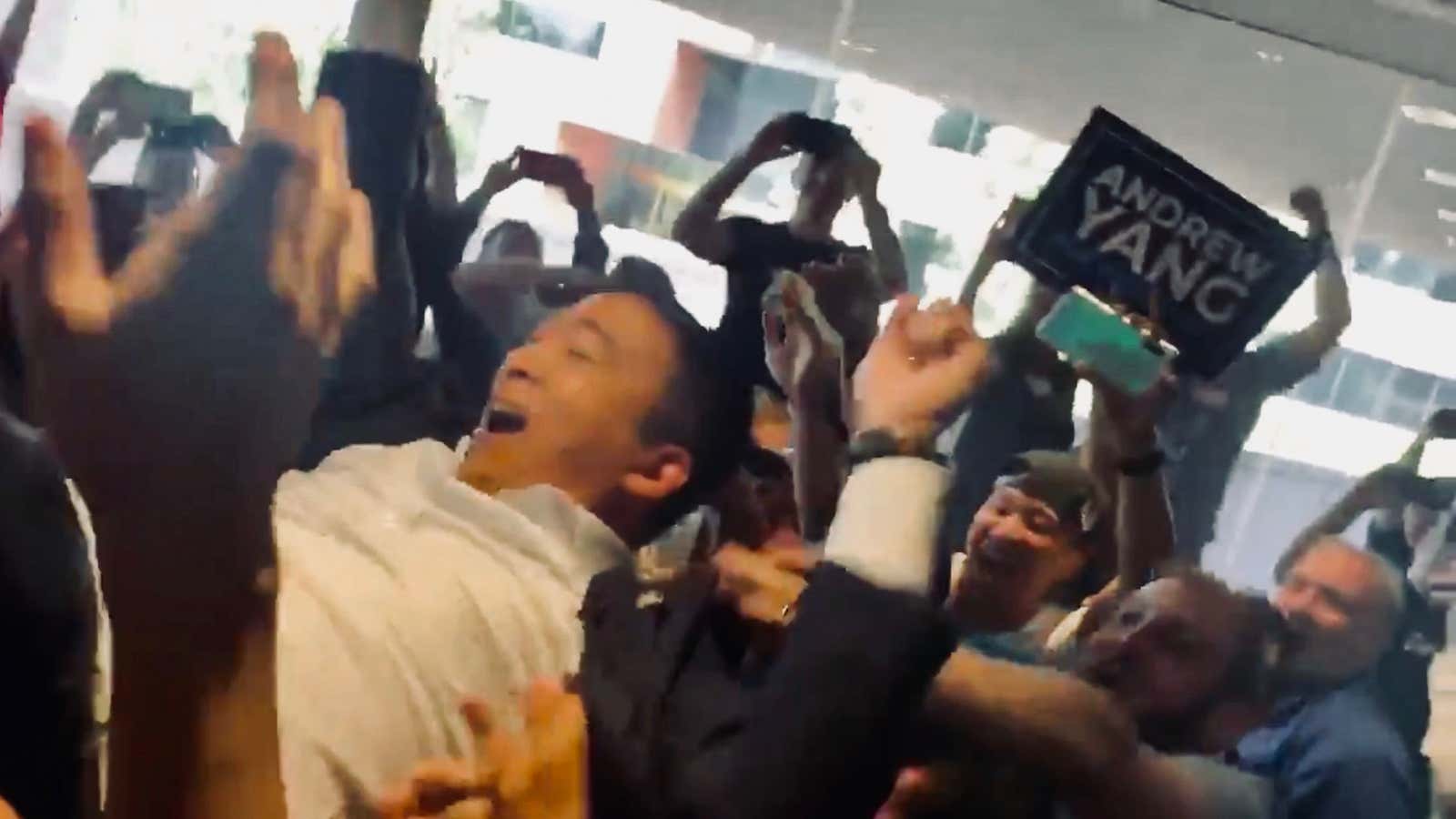Democratic presidential candidate Andrew Yang is an aspiring politician. But his angle in the 2020 campaign is that he’s an outsider, a Silicon Valley entrepreneur who sees the future and shares the general population’s mistrust of professional lawmakers.
His major promise has been Universal Basic Income, a $1,000 monthly check from the government for Americans to spend as they see fit, and tonight at the third round of Democratic primary debates he said in his opening statement that he’d begin by giving 10 American families that amount for a year.
“It’s original. I’ll give you that,” South Bend, Indiana mayor Pete Buttigieg quipped when Yang finished and it was his turn to make his plea.
But Yang’s offer, while original indeed, was utterly predictable. In fact, I called it yesterday when Yang’s campaign said he’d do something unprecedented at the debate (other guesses from members of the Quartz newsroom included that he’d show up as a hologram, go pants-less to one-up his traditionally tie-less presence, don a hoodie, or crowdsurf as he has done at campaign events).
The candidate condemns the American focus on “the almighty dollar,” yet continuously talks about government as a business. Yang talks about Americans being the “owners and shareholders” of democracy. He announced a contest during a presidential debate. A cash giveaway!
It’s hardly a move likely to bolster confidence in his ability to run a country. Universal Basic Income may be a good idea, however Yang’s call to action tonight rang not like a novel approach to solving income inequality but like a desperate ploy to attract people to his website.
More disturbingly, it’s also unseemly. Yang is asking American families to tell him what they would do with the money he’d send them in order for his campaign to determine who are the most worthy recipients. But UBI is pretty much the opposite of that. It’s a plan that is meant to defend personal dignity by supplying everyone with enough money to meet their basic needs instead of asking the poor in particular to make a case for saving them financially.
